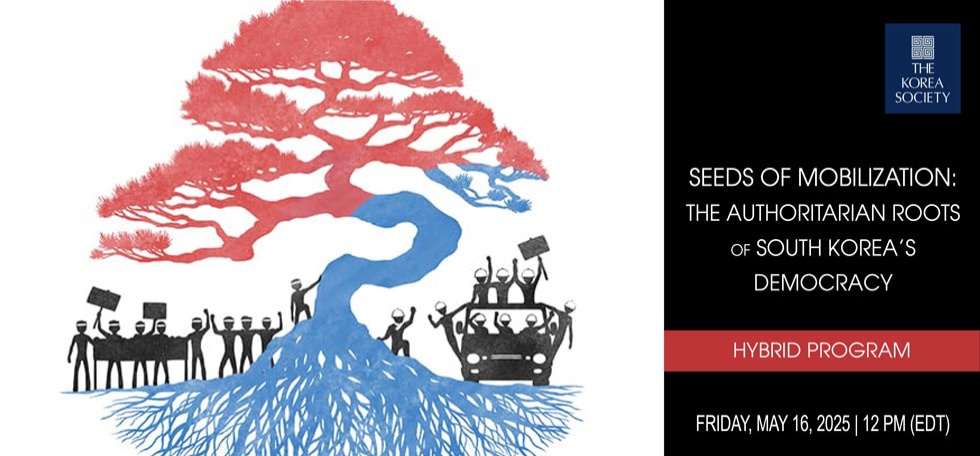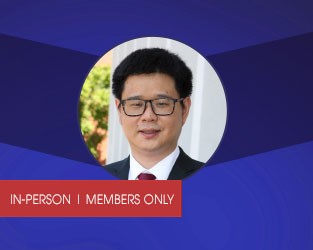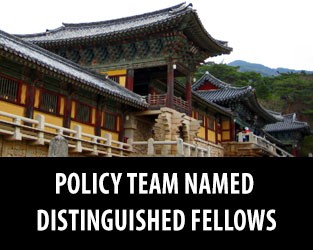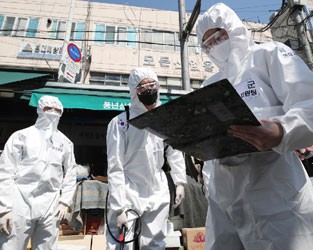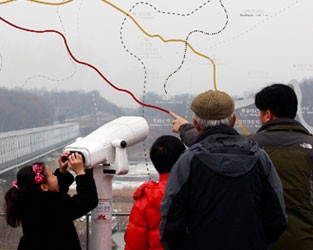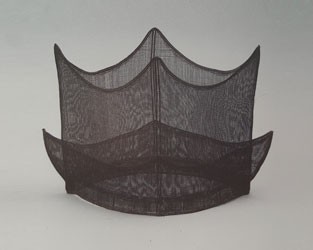National Assembly Acting Speaker’s Vision for Reunification
Towards Peace on the Korean Peninsula
Wednesday, May 9, 2012
Speaker
The Honorable Chung Ui-Hwa
ROK National Assembly Speaker (Acting)
Thank you for the kind introduction, President Minton.
Good afternoon, Ladies and gentlemen,
New York always reminds me of the days when I was doing a one-year clinical fellowship at the NYU Medical Center Neurosurgery Department from 1979 to 1980. Every time I come back to New York, where I worked hard in my younger days, I just feel so comfortable as if I were at home. My visit to New York this time will go down as a very significant moment in my personal history. It is thanks to the honor given to me to address The Korea Society, first time since I entered politics 16 years ago.
As you might have noticed, I am a medical doctor-turned politician. It is probably due to my training as a neurosurgeon that I tend to compare a divided Korean Peninsula to a hemiplegic patient. The full rehabilitation of the patient, that is, unifying Korea, is a wish that I have cherished for so long.
Today, I would like to take this precious opportunity to share my views on how to achieve peace and reunification on the Korean Peninsula and the possible roles of the U.S. and China in the process. I believe reunification is a matter that requires a 4-dimensional perspective and a strategic and comprehensive approach.
I feel strongly about taking the path to reunification, no matter how long and bumpy the journey might be. Domestically, we need to have three steps in place to achieve this objective: overcoming divisive politics based upon regions; balanced growth across the nation; and inter-Korean reconciliation and cooperation. We also need external assistance such as cooperation with countries concerned and favorable circumstances of world order. When these conditions are in place, the 67-year-old wish of 80 million Koreans will come true at long last.
To achieve reunification, we need to have a clear vision for 'One Korea.' To this end, I propose a nuke-free, peaceful and open Korea. The unified Korea will be a peace-loving, free-trading country, free of nuclear weapons. There exists a strong consensus on this vision among us Koreans. A divided peninsula is a liability to Northeast Asia, but a unified one will turn out to be a tremendous asset to the region and beyond, making an enormous contribution to regional and global peace and prosperity.
To pave the road to reunification, we need to be able to see the bigger picture. The concept of a regional peace and prosperity should be drawn within the larger frame of an East Asia Community and the reunification of the Korean Peninsula should constitute the details of the picture.
To this end, we should step up efforts to get North Korea to come out of its shell and engage in discussions, even though Pyongyang is responsible for its own isolation. In addition, what may also provide the necessary momentum in the process is for Pyongyang to normalize relations with both Washington and Tokyo. Korea's relations with China and Russia have expanded significantly since the establishment of diplomatic ties with the two Asian powers. Therefore, to bring peace and stability to the peninsula, it is essential for North Korea to break out of diplomatic isolation and become a responsible member of the international community.
North Korea’s missile launches and its nuclear program deserve strong condemnation and can only be described as self-destructive. Pyongyang should put an immediate stop to nuclear tests and other provocations, as such moves will only trigger outrage in the international community and result in tougher sanctions. North Korea insists that it started developing nuclear weapons as a way to maintain its regime, which means that their fear for a possible regime change is fairly high. The member states of the Six-Party Talks have been striving to resolve the nuclear issue for years, but their efforts have not been rewarded up until now. Therefore, I believe actions designed to lower their fear can offer part of the solution. We should always keep in mind that the ultimate solution lies in the reunification of the Korean Peninsula, which will surely close the chapter on ideological confrontation.
In my view, being caught up in the nuclear issue alone can make it more difficult to find solutions to the issue. Of course, we should not accept the practice of rewarding provocations any longer. However, we also need to take a more patient and comprehensive approach to find a practical solution to the North Korean nuclear issue.
Therefore, though the Six-Party Talks are aimed at dismantling North Korea's nuclear weapons program, discussions within the forum should also address how to establish a peace regime on the peninsula and in Northeast Asia. In the long run, the framework should serve as a foundation for supporting reunification.
The Korean government needs to set out smart strategies to effectively control North Korea’s self-destructive acts. Of course, first of all, we must call on North Korean authorities to stop nuclear tests and missile launches. Such provocations pose a grave threat to peace and stability on the peninsula and beyond and aggravate the suffering of North Koreans.
The Korean government needs to come up with new North Korean policies with three main objectives: to defuse nuclear threats and military tensions; to facilitate reconciliation and cooperation between the South and the North; and to relieve the suffering of North Korea people. Furthermore, the policies should be sustainable and balanced, based upon strategies.
As one of the contributors to the inception of the Lee Myung-bak government, I find it regrettable that inter-Korean relations have become strained under the current administration. Except for the Gaesung Industrial Complex, our efforts to expand inter-Korean economic engagement have been stalled.
Let me take the example of Germany here. The Christian Democratic Union under the leadership of Chancellor Kohl was not happy with the Socialist Democratic Party’s appeasement toward East Germany. Nevertheless, the CDU government inherited the policy of Ostpolitik and succeeded in leaving the enduring legacy of German unification. In this regard, we should step up efforts to strengthen continuity in North Korean policies. We should also create a tradition of fixing past mistakes and building upon the positive outcome of the past. If we continue to make drastic turns in policies every time a new administration takes office, political and diplomatic prices we have to pay will be too high. There is a saying “The past shapes the present.” I think the principle can also be applied to inter-Korean relations.
The previous two administrations have their share of missteps. The former Kim Dae-jung government was acknowledged for having opened the gate to inter-Korean engagement. But there were not enough efforts to build consensus and seek agreement among the public when making decisions to provide assistance to North Korea. The Roh Moo-hyun administration focused too much on leaving a legacy and agreed upon projects costing an astronomical amount of money without seeking understanding from the public.
Accordingly, to create a successful formula, the Korean government’s North Korean policies should be undertaken, based upon the following three criteria.
First, the past achievements should be acknowledged so that they can serve as a basis for future policies. We can correct the mistakes of the past to formulate better policies. Pursuing continuity, rather than severance, and succession, rather than denial, will contribute more to the promotion of inter-Korean relations. In this regard, the spirit of the June 15 and October 4 Declarations should be honored and inherited and discussions should be resumed to put agreements into practice.
Secondly, new policies should be carried out on the basis of agreement and consensus among the public. Reunification is a historic task that can never be achieved without gathering people’s consensus. There are so many things for which we should seek public opinions and build consensus. For example, we need to secure public consensus on the provision of assistance for North Korean defectors and humanitarian aid including food and medical assistance. Without public consensus, policies cannot be implemented on a consistent basis.
Third, new policies should be based upon the principle of utilitarianism, implementing feasible objectives ahead of others. The Gaesung Industrial Park, which did not stop its operation even after military confrontations between Seoul and Pyongyang, remains a testament to the significance of economic cooperation for peace and reunification on the Korean Peninsula.
If the Korean government seeks to promote inter-Korean dialogue and cooperation based upon these three criteria, it will lead to a deeper understanding and trust and contribute to lowering fear on the part of North Korea. When we apply this formula and succeed in defusing tensions and regaining stability on the peninsula, we will find ourselves standing much closer to the destination we hope to reach.
As part of my efforts to advocate the 2nd and 3rd criteria, I have started the process of gathering consensus on reunification costs and launched a campaign called “3030 (Thirty-Thirty) Initiative” designed to assist North Korea to rebuild its healthcare system.
It is anybody’s guess how much reunification would cost. But one thing is for certain. Costs of a division are much higher than costs of a unity. Therefore, I have made considerable efforts to raise the profile of the issue so that the topic can gain more public exposure and attention. I have used many occasions to emphasize the need for discussions on how to finance reunification, because reunification is the most significant task that the Korean people should undertake and cannot afford to delay any longer.
The 3030 Initiative was launched years ago after I witnessed the dire conditions of healthcare in North Korea. I established the Inter-Korean Medical Cooperation Foundation with the objective of raising around 100 million U.S. dollars to build 30-bed hospitals in 30 cities in North Korea. Those seed hospitals can serve as base camps and grow into general hospitals after reunification.
Given recent situations, an inter-Korean summit is not likely to materialize in the near future. Then, as a plan B, we should explore the possibility of holding an inter-Korean parliamentary meeting. As a matter of fact, on January 1, 2011, I proposed a meeting between the two parliaments in my New Year’s Address. I said, “Let's just sit down and talk.” Even though inter-Korean relations looked like a tangled skein, seemingly impossible to unravel, I thought we could find solutions to the puzzle if we put our heads together.
In fact, North Korea reacted to this proposal. Unfortunately, however, conditions were not mature for the Korean National Assembly to push ahead with the proposal, so we had to pass up the opportunity for what could have been a historic meeting. As one of the longest-serving members of parliament, I plan to resume my effort to hold an inter-Korean parliamentary meeting in the incoming National Assembly. I am confident that the meeting will lay the solid foundation for reconciliation and cooperation. I will also make necessary efforts to put reunification at the center of policy debate so that reunification can have as much weight as the issue of welfare in national policy discourse.
Let me shift gears somewhat to present my view on the role of China in the process of reunification. Cooperation with China is integral to achieving reunification, and probably as essential as our alliance with the U.S. China’s steady growth as an economic power is closely associated with stability on the Korean Peninsula. Therefore, a peaceful reunification on the peninsula will present China with enormous benefits. A unified Korea will dramatically boost the economy of backward areas in the northeastern part of China and help them prosper, just like Shanghai and other adjacent areas in the Southeast. China will emerge as the greatest beneficiary of reunification and Sino-Korean economic relations will deepen even further.
Moreover, a unified Korea will serve as a buffer for possible conflicts between the Group of 2, that is, the U.S. and China. As long as North Korea remains an economic basket case and a rogue state developing Weapons of Mass Destruction, peace and prosperity in Northeast Asia will turn out to be a castle in the sand and China’s strategic goal of creating a Northeast Asia Community will be a far cry from reality. For these reasons, China should cooperate more actively with the U.S. and play a greater role in promoting inter-Korean reconciliation and cooperation, denuclearization of the Korean Peninsula and opening of North Korean society.
Lastly, let me touch upon the role of the U.S., our key partner on the journey to reunification.
The U.S. has been a strong political ally to Korea since the establishment of the modern Korean government after World Word Ⅱ and maintained the relationship of blood alliance on the military front. I have no doubt that our relationship will remain as strong as ever. Whereas supporting the establishment of the Korean government was in the interests of the U.S. 67 years ago, assisting Korea on the path to reunification and playing a constructive role in the process will serve even greater interests of the country.
As shown in the case of Germany, we should unify the Korean Peninsula, not through confrontations and conflicts, but through peaceful means and strong support from major powers, such as the U.S. China, Russia and Japan.
In particular, a more amicable Sino-American relationship will have a very positive effect on reunification. When the U.S. develops its relations with China into a friendly partnership and a peace regime takes shape in East Asia, the jigsaw pieces of the reunification puzzle will fall into place. A unified Korea emerging in positively evolving Sino-U.S. relations will surely provide benefits both to China and the U.S.
The unified Korea created through the process will have the following characteristics.
First, a unified Korea will be a facilitator of cooperation between the U.S. and China. (Facilitator of U.S.-China cooperation)
Secondly, a unified Korea will be a major force driving the global economy, along with a Northeast Asia Economic Community created in the wake of reunification. (Driver of the global economy)
Thirdly, a unified Korea will be a key contributor to promoting peace in the world by preventing the proliferation of WMD and putting an end to the era of ideological confrontation. (Guardian of world peace)
Distinguished members and guests of the Korea Society,
I believe you have been supporting and cheering for my country with the expectation that Korea will realize this positive vision some day.
Inter-Korean relations have been repeating the vicious cycle of crisis, reconciliation and crisis. The feeling of being trapped in the cycle sometimes makes us Koreans think that we are going through the penance of Sisyphus in Greek mythology, but we must move forward, keeping this vision near our hearts.
Hope never abandons you. It is you that abandon hope.
Thank you for your attention.
" target="_blank">iTunes
![]()

